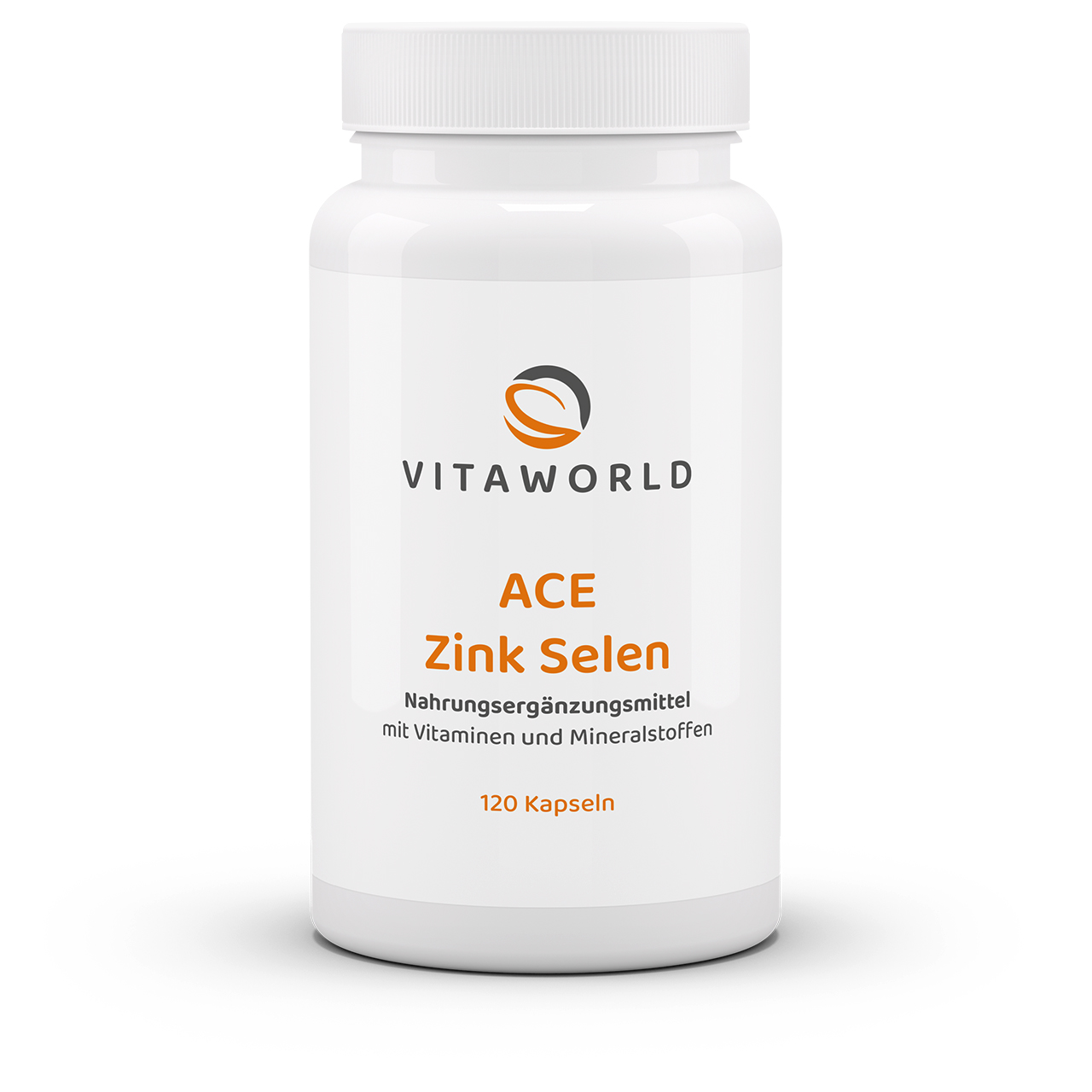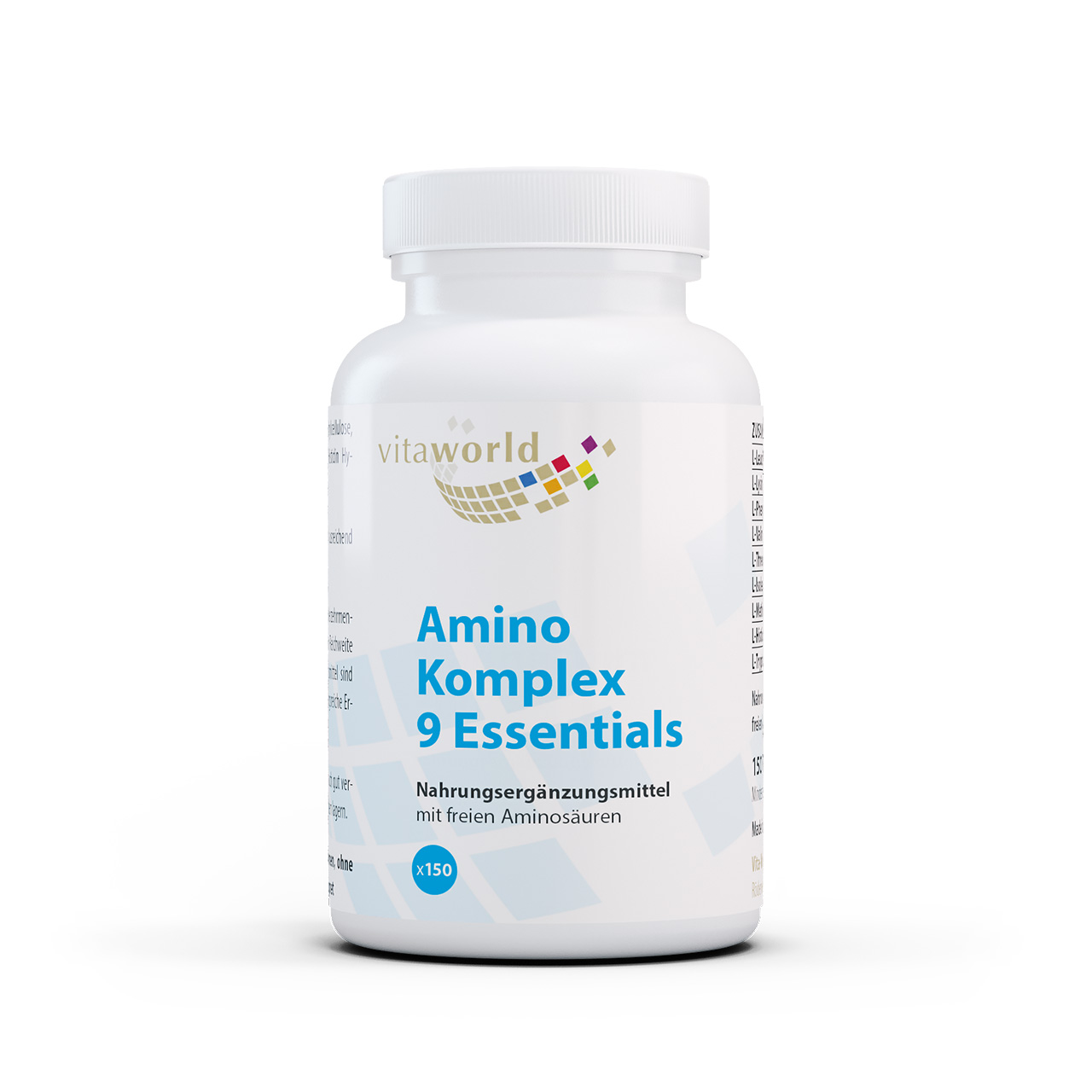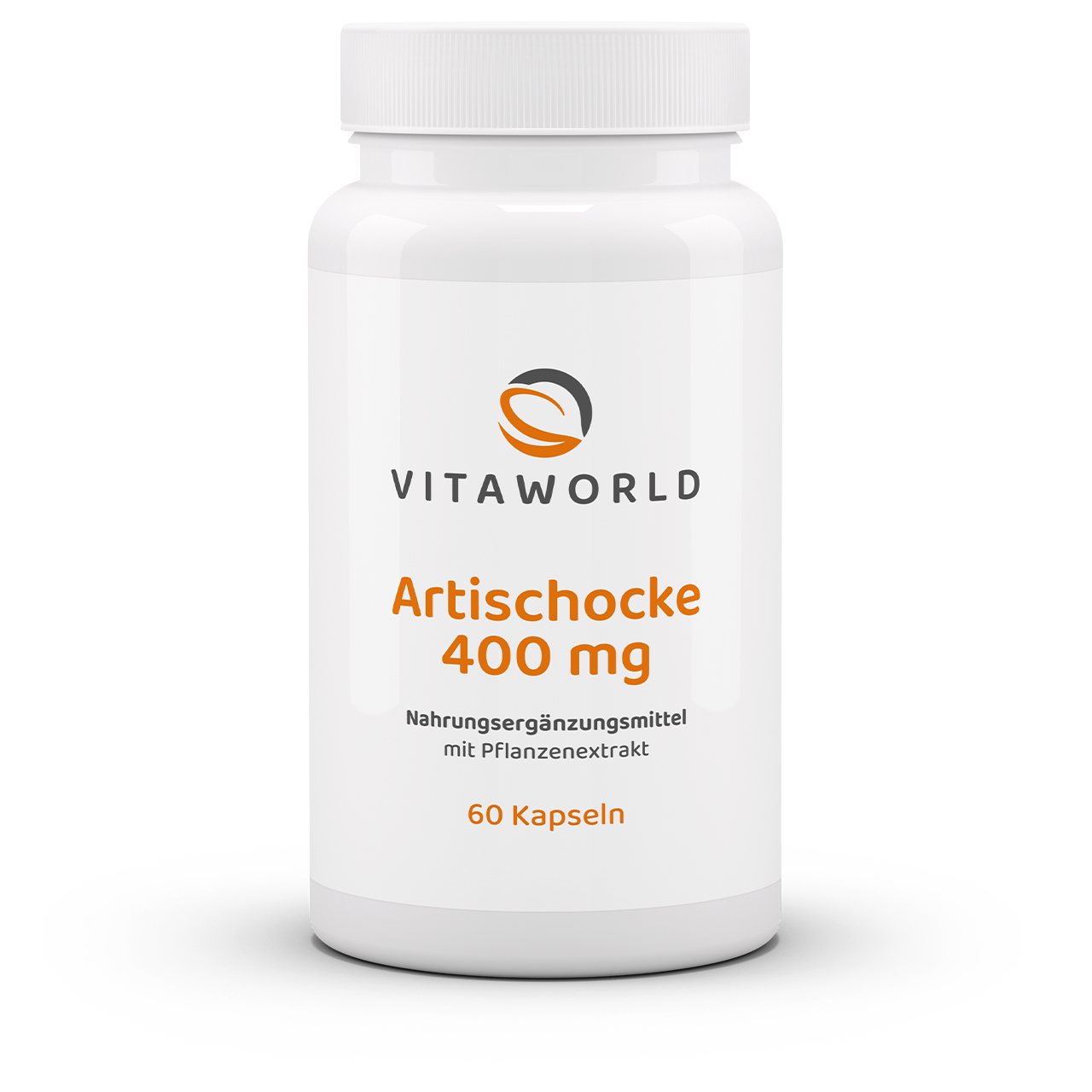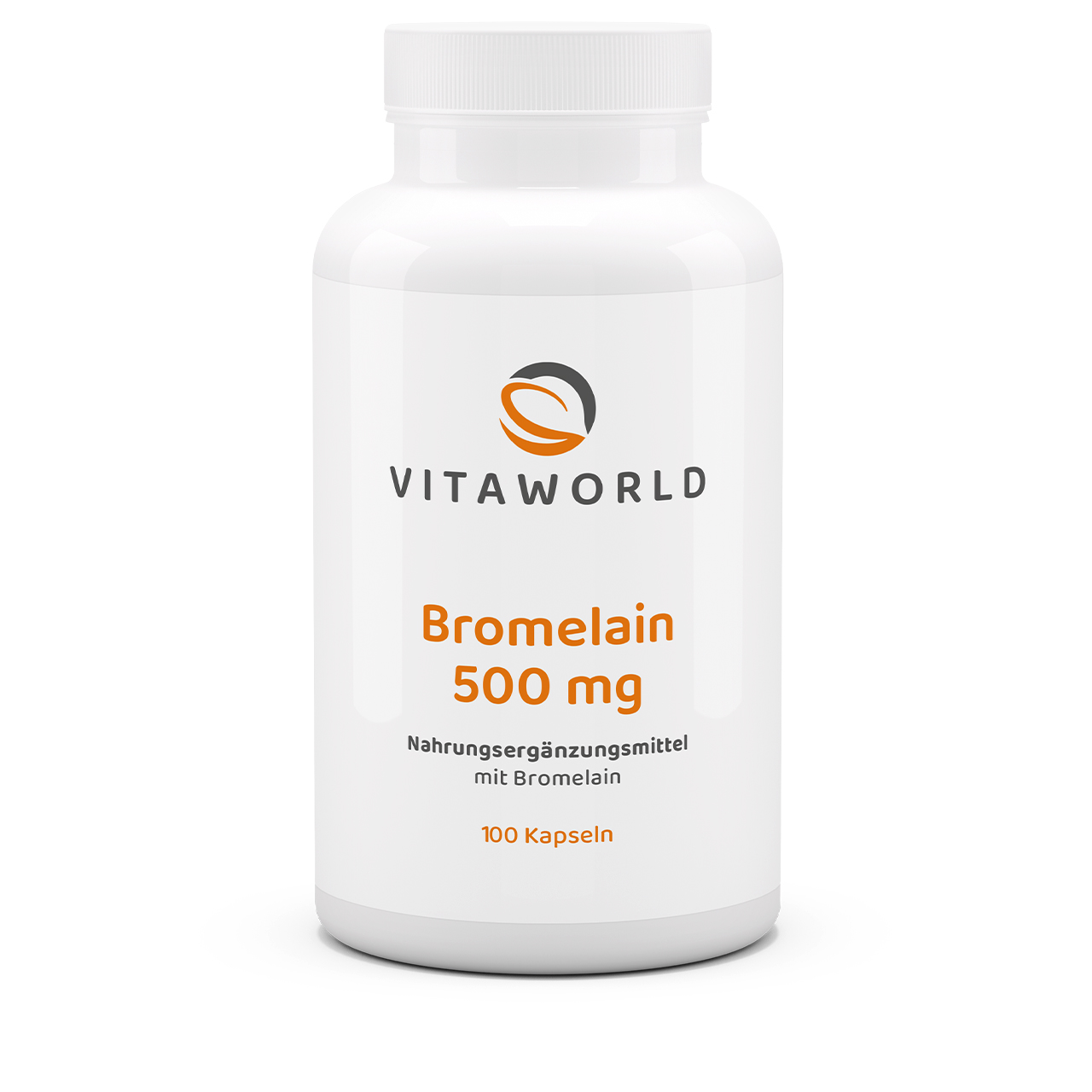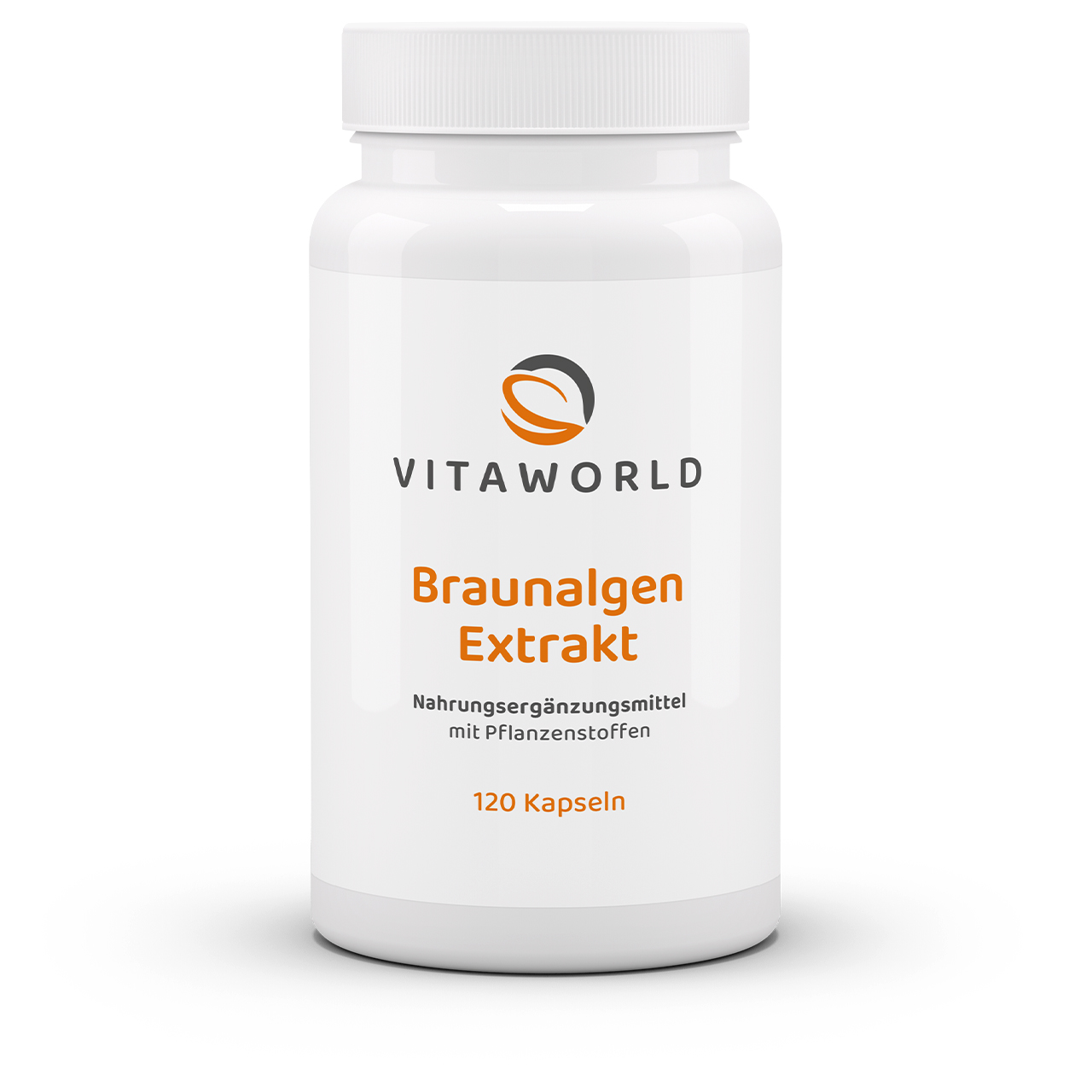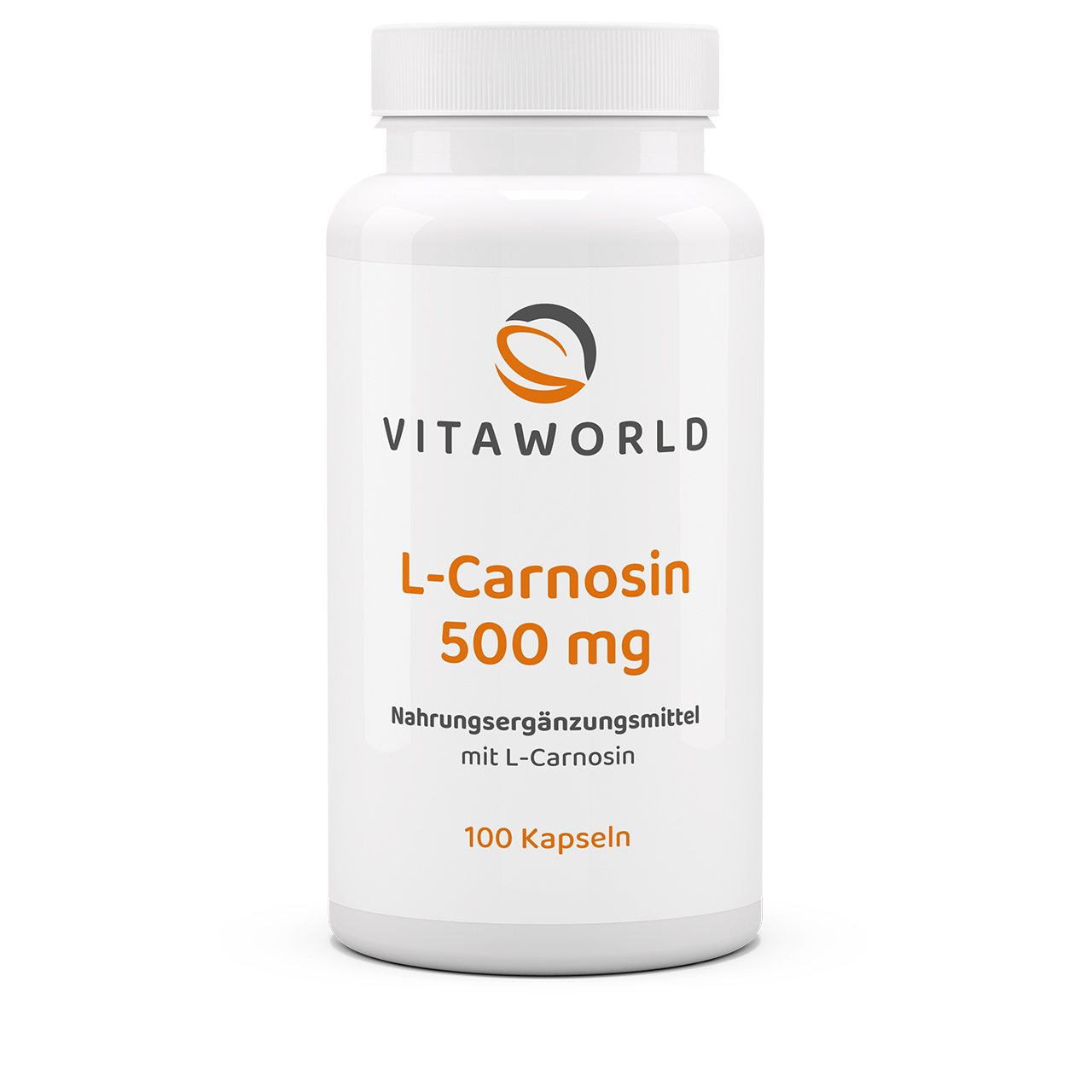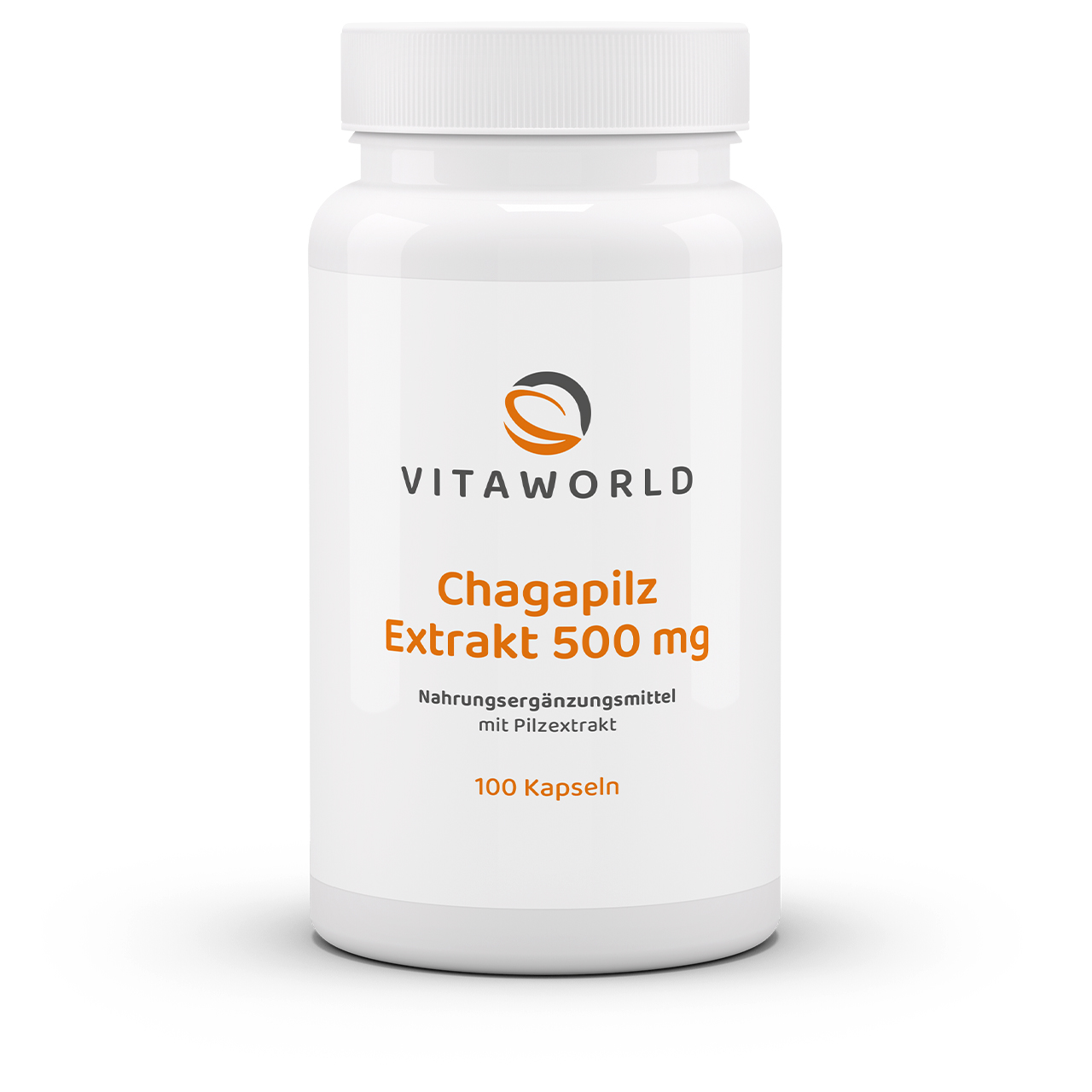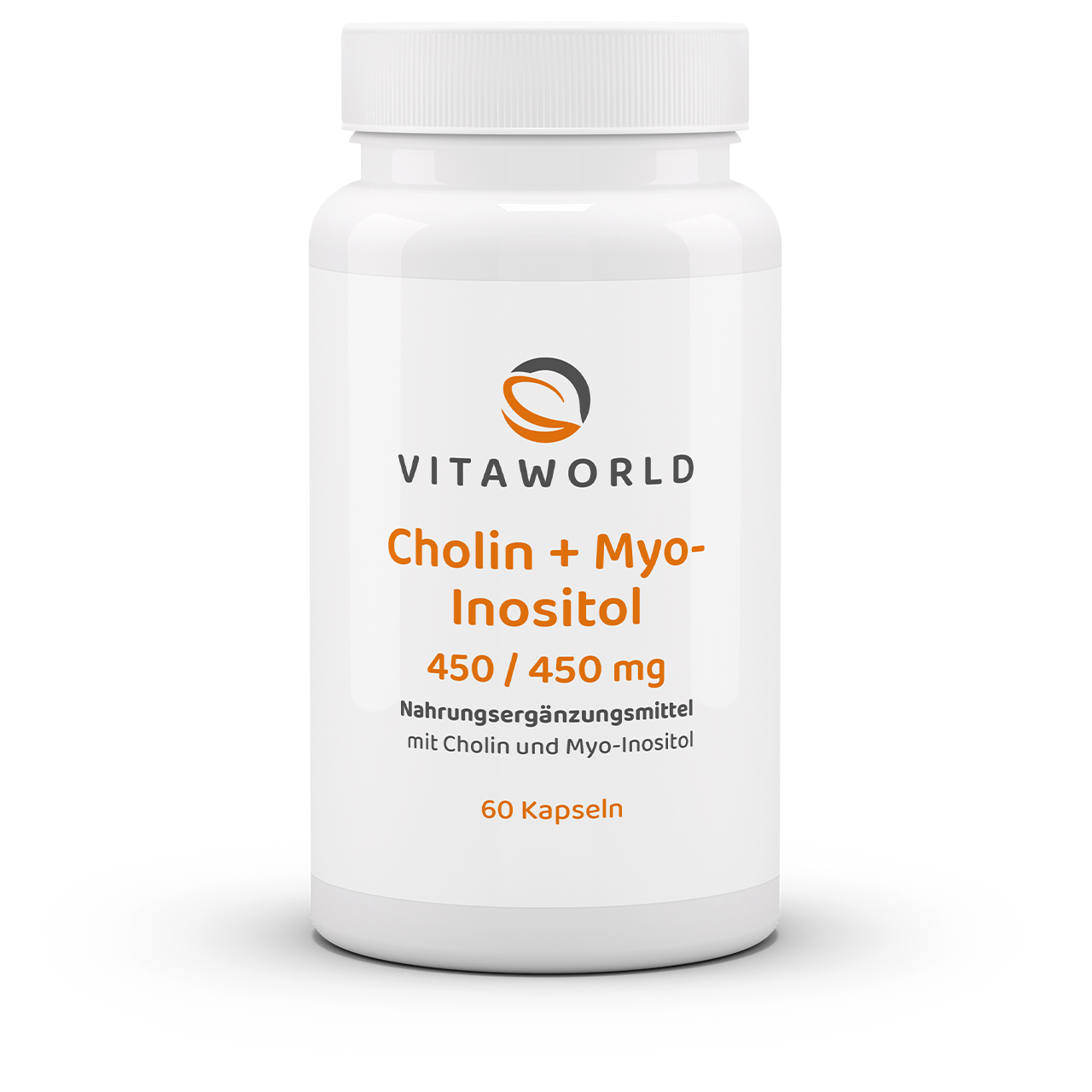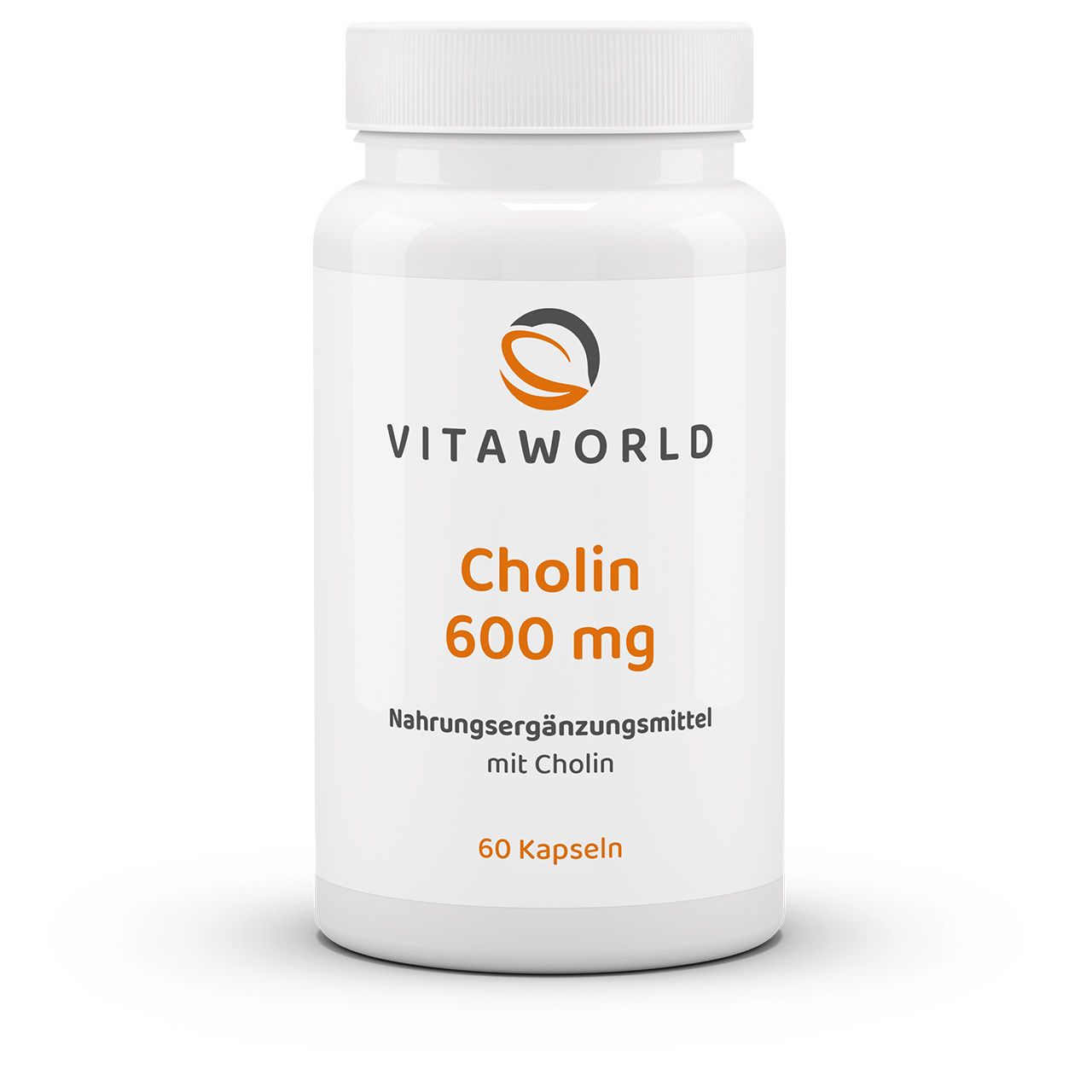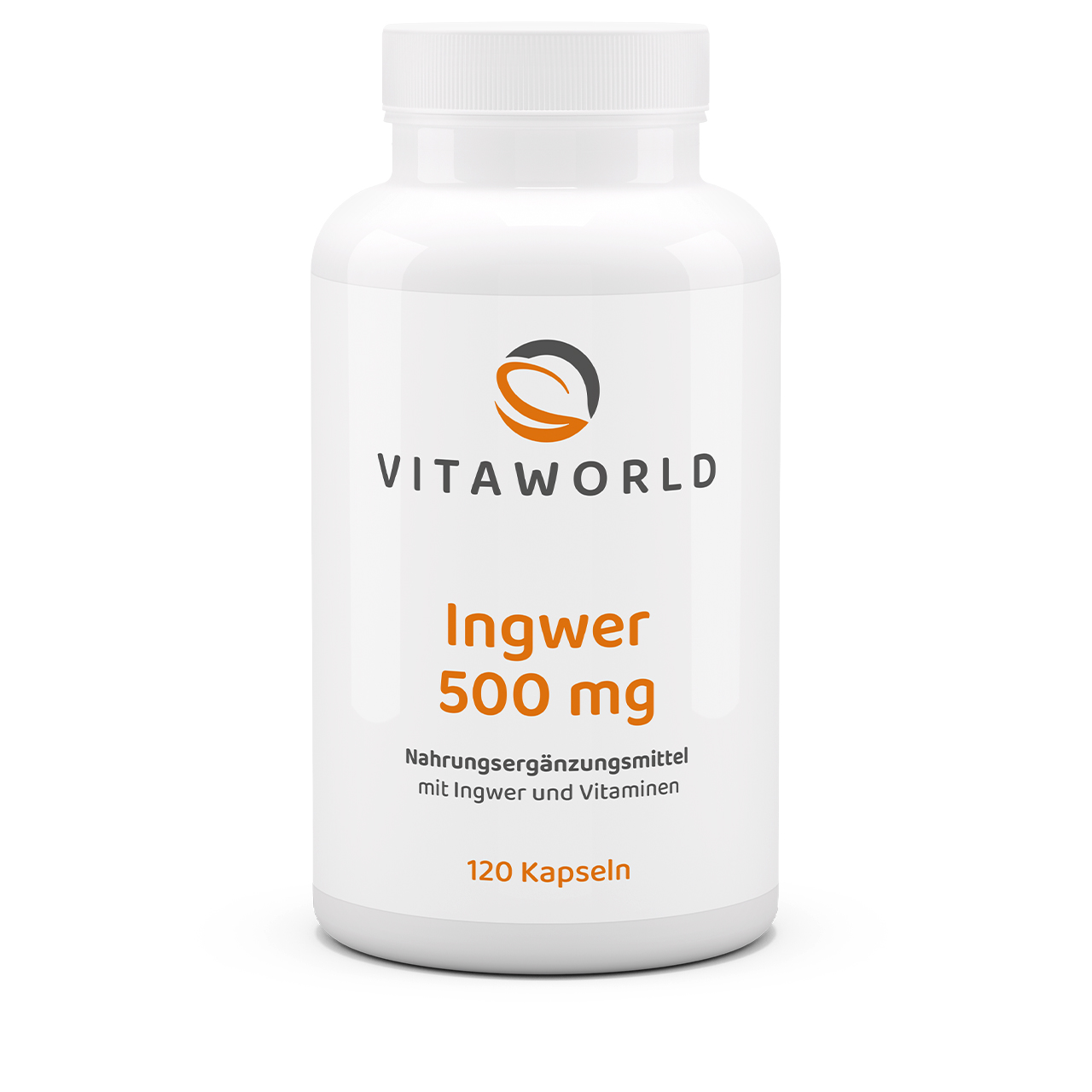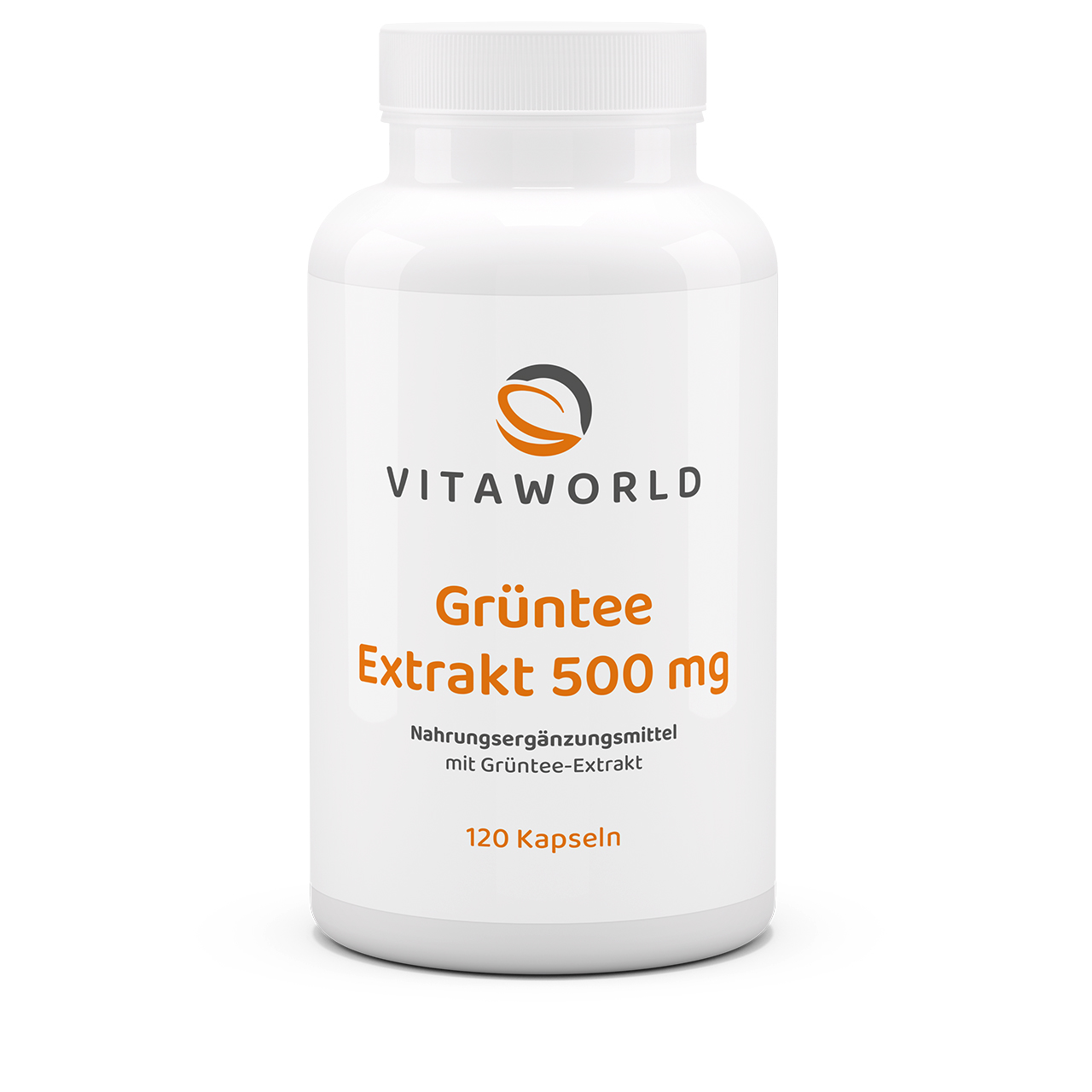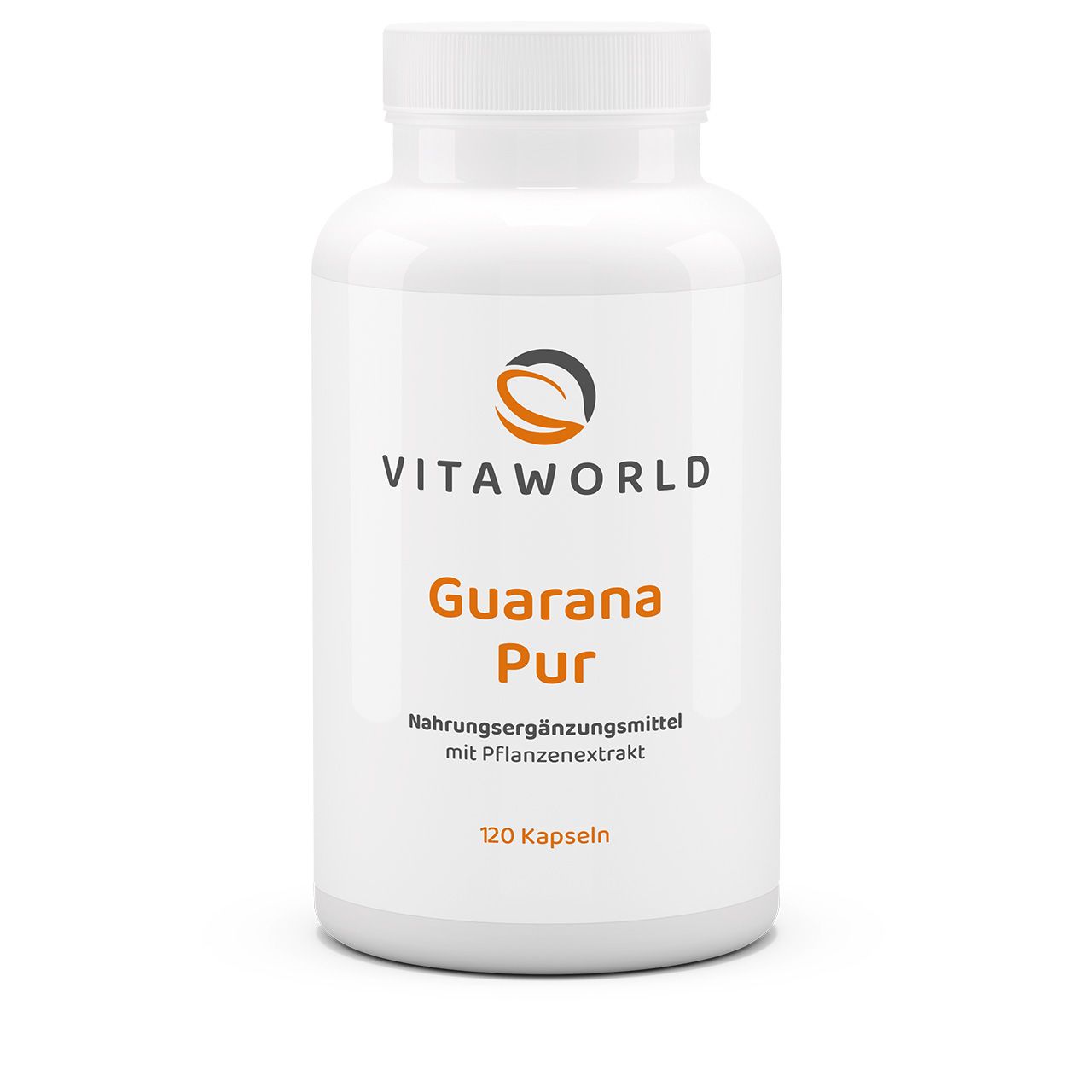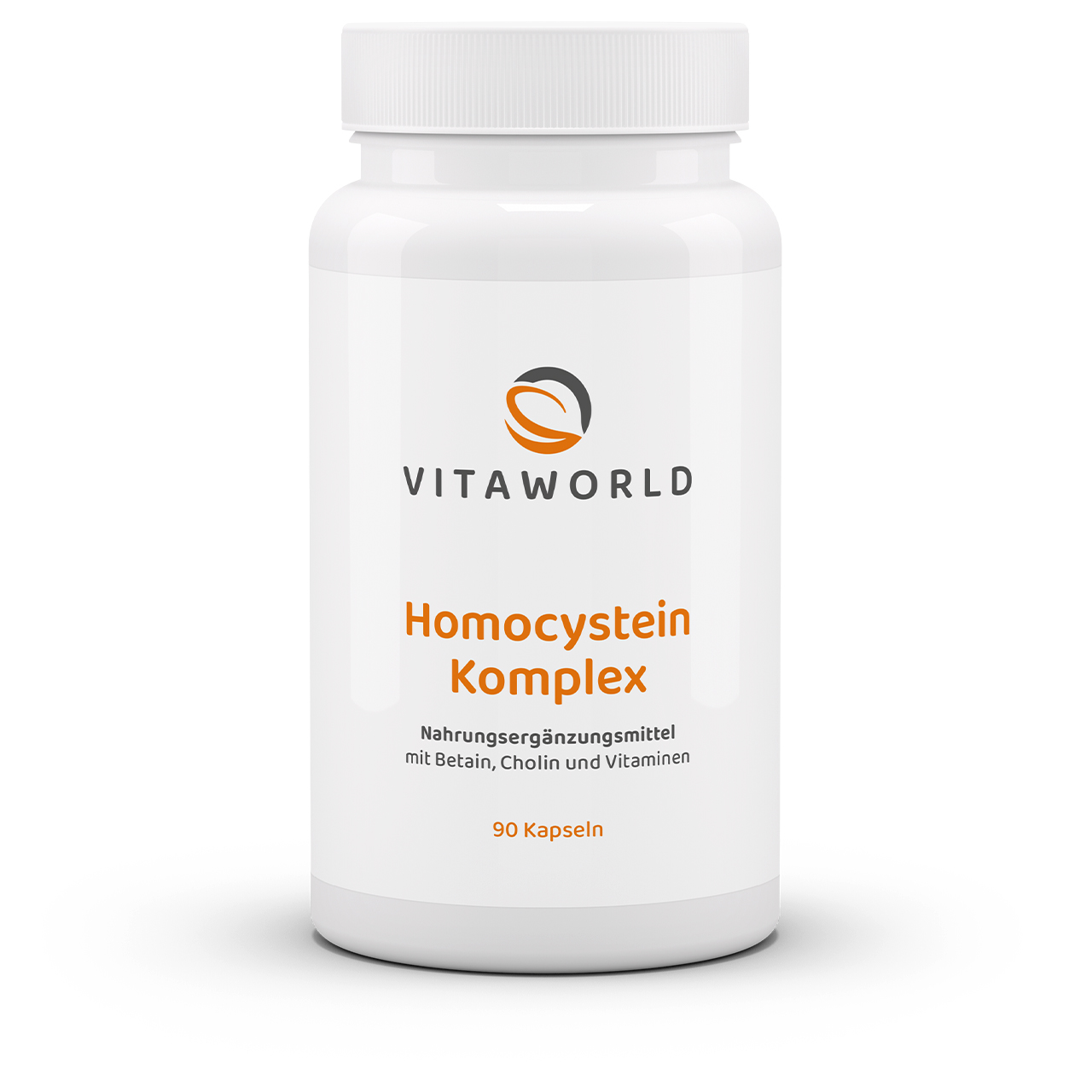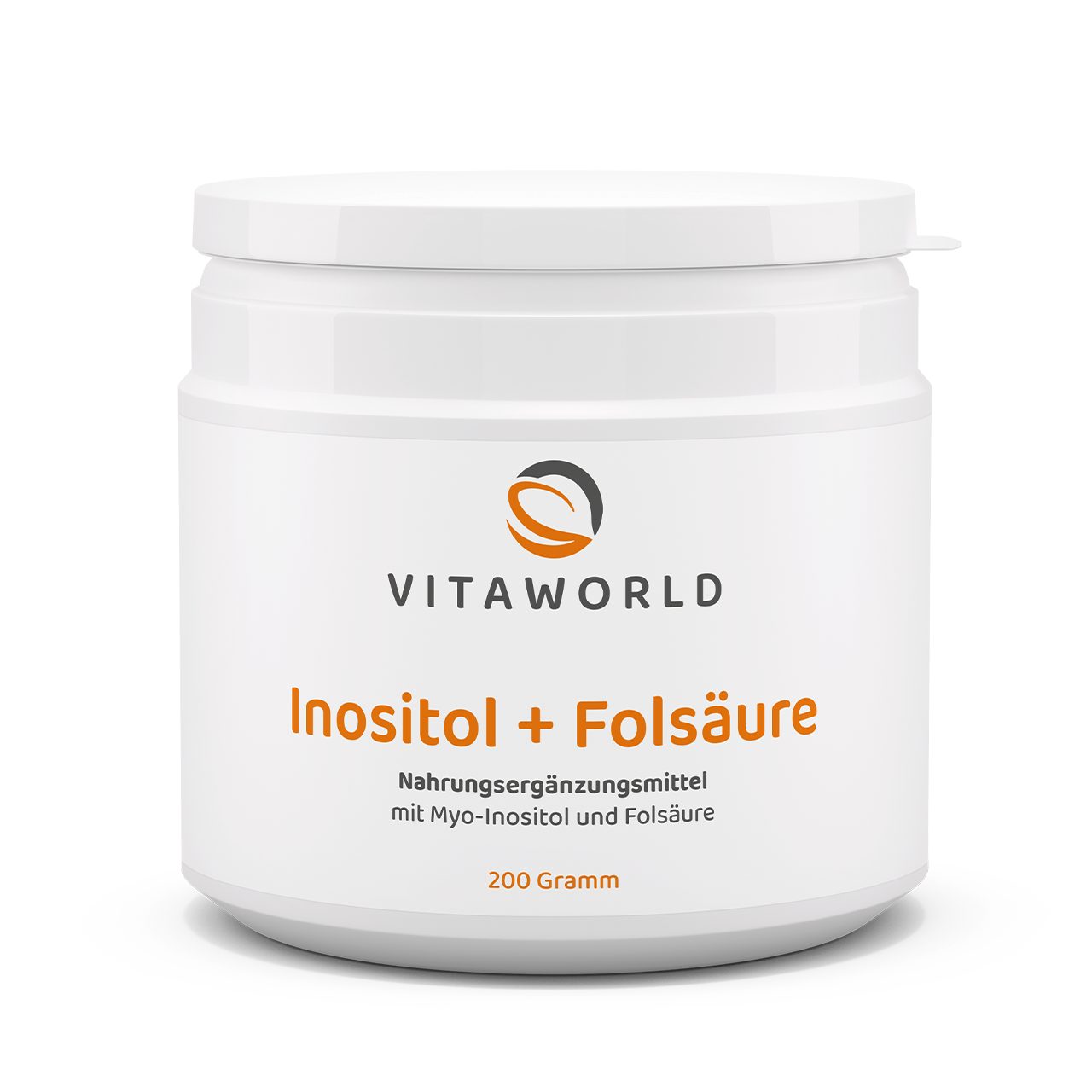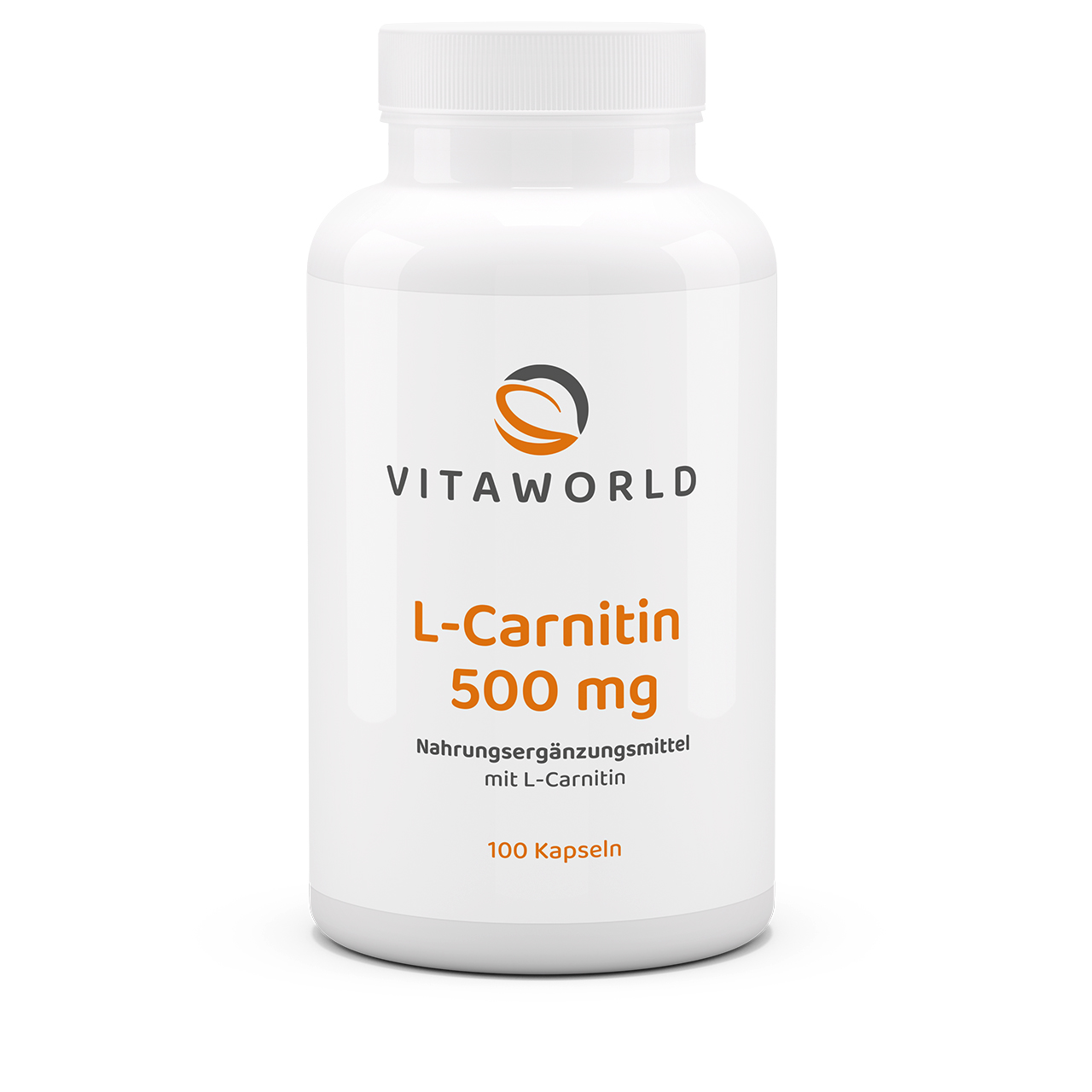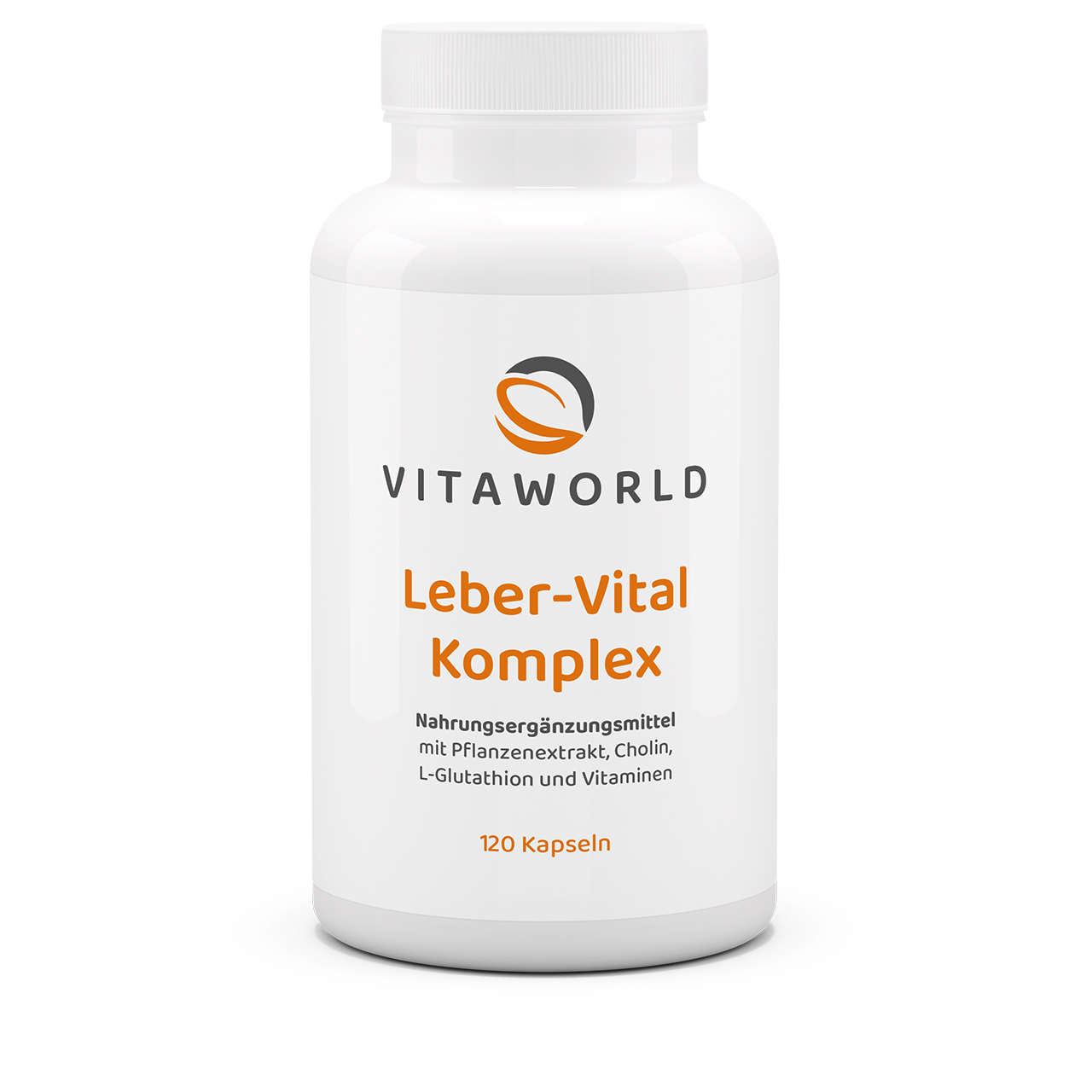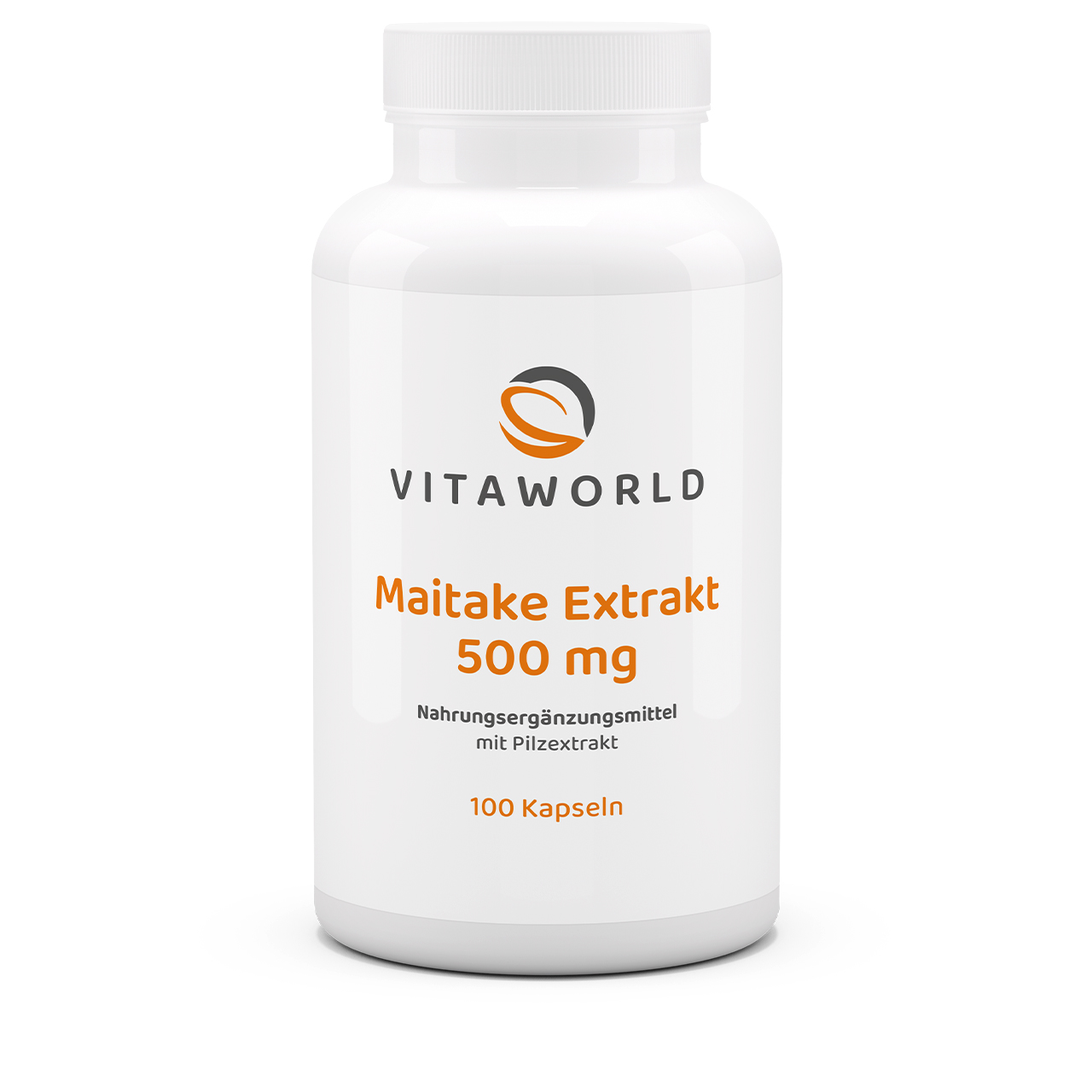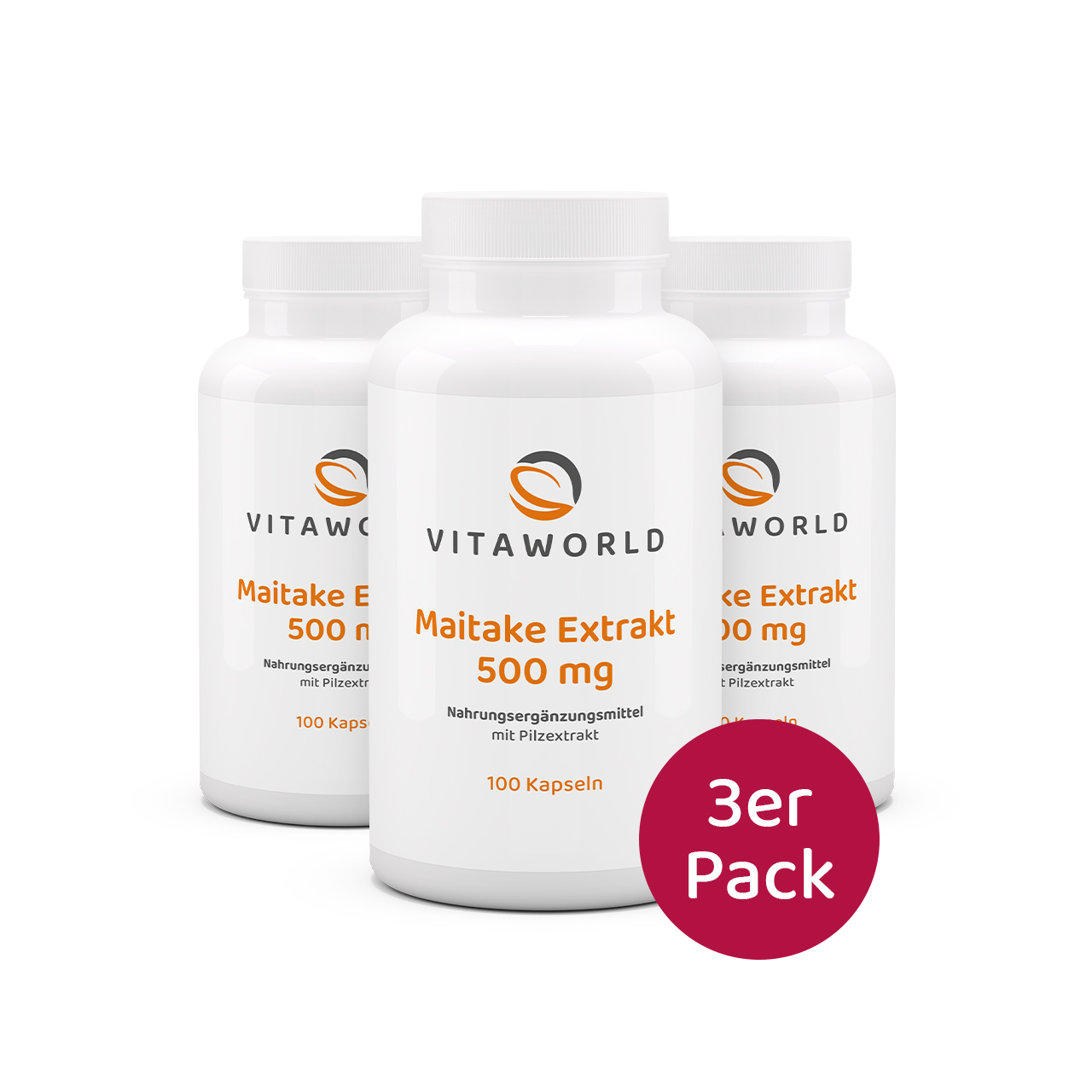Filter products
Metabolism
An active metabolism is the key to vitality and energy. Do you want to exercise more and lead a more active life? Give your metabolism the boost it needs: artichoke, guarana and cinnamon can help boost your metabolism in a gentle and natural way. Gain more vitality and feel more energetic and powerful by positively influencing your metabolism.
- Your daily protective shield – Feel confident throughout every season with vitamins A, C, E, zinc and selenium
- Radiance from within – Vitamin C protects cells from oxidative stress
- More energy, less fatigue – Vitamin C supports energy metabolism
Content: 0.048 Kilogramm (€289.58* / 1 Kilogramm)
- Optimally supplied with 9 essential amino acids – ideal for active phases of life
- amino acids in pure form – plant-based, pure and carefully combined
- the daily building block for your protein-conscious lifestyle
Content: 0.1935 Kilogramm (€102.84* / 1 Kilogramm)
- Valuable bitter compounds from a plant with a long history
- More than just a vegetable: artichokes as part of a healthy diet
- Traditional plant from the Mediterranean region with a distinctive aroma
Content: 0.0297 Kilogramm (€400.67* / 1 Kilogramm)
- Naturally balanced – with the BASOTOP® Balance Formula
- Mineral complex for a balanced acid-base balance
- For more balance in everyday life
Content: 0.75 Kilogramm (€17.20* / 1 Kilogramm)
- Naturally balanced – with the BASOTOP® Balance Formula
- mineral complex for a balanced acid-base balance
- for more balance in everyday life.
Content: 0.75 Kilogramm (€17.20* / 1 Kilogramm)
- 9 bitter herbs, alcohol-free: Discover artichoke, rosemary and more for your well-being
- Traditionally valued, modernly interpreted – valuable bitter compounds for every day
- Natural essences: dandelion, gentian and ginger – versatile and purely plant-based
Content: 0.05 Liter (€318.00* / 1 Liter)
- Your daily contribution to inner balance – With chromium, zinc and selected plant substances
- Focus on metabolism – Chromium for blood sugar, zinc for carbohydrate metabolism
- The power of fibre meets plant extracts – Inulin, curcumin and piperine as a well-thought-out supplement
Content: 0.0332 Kilogramm (€599.40* / 1 Kilogramm)
- Bromelain – 500 mg protein-splitting enzyme from pineapple
- Naturally sourced from pineapple – 500 F.I.P. bromelain per daily dose
- Plant enzyme power – concentrated bromelain from pineapple stem
Content: 0.07 Kilogramm (€241.43* / 1 Kilogramm)
- Duo from the sea - Combines 140 mg of brown algae and 360 mg of spirulina per capsule
- Natural source of iodine - Contains 210 µg of iodine per capsule from brown algae
- Traditional knowledge - This combination combines the powers of two algae that have been known in Asia for centuries
Content: 0.0714 Kilogramm (€236.69* / 1 Kilogramm)
- Endogenous substance: Carnosine occurs naturally in muscles and the brain – ideal for supplementary intake
- For active people: Valued in sports nutrition for decades – now available in convenient capsules
- Pure & high-dose: 500 mg carnosine per capsule, no additives or animal ingredients
Content: 0.062 Kilogramm (€433.87* / 1 Kilogramm)
- Wild harvested: High-quality chaga from natural forests in the northern hemisphere
- Compact & powerful: 500 mg concentrated extract per capsule – ideal for modern use
- Tradition meets quality: Valued for centuries – now available as a standardised extract
Content: 0.062 Kilogramm (€320.97* / 1 Kilogramm)
- Powerful 2-in-1 formula: 450 mg choline + 450 mg myo-inositol in an ideal 1:1 ratio – synergistically combined
- Well supplied – even for vegans: With plant-based choline bitartrate – highly bioavailable and suitable for all diets
- For cells & nerves: Choline supports liver function & fat metabolism
Content: 0.0545 Kilogramm (€23,669.72* / 100 Kilogramm)
- Highly concentrated & pure: 600 mg choline per daily serving – ideal for targeted supplementation
- Important for liver & fat metabolism: With bioavailable choline bitartrate – plant-based & well tolerated
- Structurally important: Choline is a component of phospholipids and contributes to the formation of the body's own substance acetylcholine
Content: 0.0522 Kilogramm (€285.44* / 1 Kilogramm)
- Ceylon cinnamon & chromium – gentle companions for everyday blood sugar control
- Chromium contributes to maintaining normal blood sugar levels
- With vitamins & minerals – for a conscious diet and a good feeling
Content: 0.0846 Kilogramm (€140.66* / 1 Kilogramm)
- 1,000 mg per tablet: High-dose L-citrulline – easy to dose, versatile
- Arginine precursor: Citrulline is converted into arginine in the body – for a long-lasting supply
- Noticeable resilience: As an arginine precursor, citrulline contributes to NO formation – for everyone who wants more
Content: 0.029 Kilogramm (€1,548.28* / 1 Kilogramm)
- 1000 mg ginger root powder per day – inspired by Far Eastern tradition
- With vitamins B1, B2 & B6 – to support the immune system
- Vitamin B2 contributes to the maintenance of normal mucous membranes – for your daily well-being
Content: 0.075 Kilogramm (€198.67* / 1 Kilogramm)
- Traditionally sourced from Camellia sinensis – gently processed without fermentation
- 500 mg polyphenols & 75 mg EGCG – full of natural plant compounds
- 70 mg natural caffeine – the invigorating classic among teas.
Content: 0.0714 Kilogramm (€180.67* / 1 Kilogramm)
- 180 mg of natural caffeine per daily dose – gentle and long-lasting effect
- From guarana seeds from the Amazon – traditionally used for natural energy
- Plant-based stimulant – the alternative to coffee and energy drinks
Content: 0.0744 Kilogramm (€159.95* / 1 Kilogramm)
- Synergistically combined – with B6, B12, folic acid, betaine & choline
- To support normal homocysteine metabolism – scientifically proven dosage
- For more balance in the body – specifically formulated for your well-being
Content: 0.0716 Kilogramm (€389.66* / 1 Kilogramm)
- 4.8 g myo-inositol + 800 µg folic acid per daily dose – perfectly combined
- Folic acid contributes to normal psychological function and cell division
- Pleasantly sweet taste – versatile and easily soluble
Content: 0.2 Kilogramm (€124.50* / 1 Kilogramm)
- 500 mg Carnipure® L-carnitine – high-purity branded raw material from plant fermentation
- 100% natural & vegan – excellent purity and bioavailability
- Perfect for active lifestyles – practical support before training or in everyday life
Content: 0.0921 Kilogramm (€183.50* / 1 Kilogramm)
- With 400 mg silymarin from milk thistle – combined with dandelion, artichoke and more
- Choline helps maintain normal liver function
- With vitamins E, B6 and B12 – for cell protection and healthy energy metabolism
Content: 0.1014 Kilogramm (€255.42* / 1 Kilogramm)
- Traditional companion for your inner balance
- With 100 mg polysaccharides – high-quality extract & carefully dosed
- Supports conscious living – naturally
Content: 0.062 Kilogramm (€320.97* / 1 Kilogramm)
- Traditional companion for your inner balance
- With 100 mg polysaccharides – high-quality extract & carefully dosed
- Supports conscious living – naturally
Content: 0.186 Kilogramm (€279.03* / 1 Kilogramm)
Understanding your metabolism: What you need to know to optimize it
Have you ever wondered why some people seem to stay slim effortlessly, while others constantly struggle with their weight? Or why you feel energized after certain meals and just tired after others? The key to these mysteries may lie in your metabolism!
How does the metabolism in our body work?
Metabolism, also known as metabolism, comprises all the biochemical processes in our body that are necessary to generate, store and use energy [1]. It is important because it supports vital functions such as respiration, digestion, cell repair and growth.
It consists of two main processes: anabolic (building up) and catabolic (breaking down) energy metabolism. In anabolic metabolism, molecules are built up and energy is stored, while catabolic metabolism breaks down larger molecules into smaller ones to release energy [3,4]. These processes take place continuously, even when we sleep.
What factors influence the metabolism?
Energy metabolism is influenced by various factors, including age, gender, genetics, muscle mass, hormonal balance and lifestyle factors such as diet and physical activity. With increasing age, energy metabolism tends to decrease, while muscle mass and physical activity can have a reverse effect [2].
Can you really speed up your metabolism?
Yes, the biochemical processes can be accelerated by various measures. Regular physical activity, especially strength training, can promote muscle building, stimulate fat burning and effectively increase the basal metabolic rate. Certain foods and spices such as green tea, hot peppers and protein-rich foods can also cause a small increase in fat metabolism by activating enzymes that support the breakdown of carbohydrates [2]. L-carnitine, for example, can support fat burning.
Which foods promote a healthy metabolism?
Foods that are rich in protein, fiber and healthy fats promote a healthy metabolism. These include [2]:
- Lean meat such as chicken and turkey
- Fish such as salmon and mackerel, eggs
- Nuts such as almonds and walnuts
- Seeds such as chia seeds and linseed
- Whole grain products
- A variety of fruit and vegetables
How does exercise affect the metabolism?
Exercise, especially intensive training and strength training, increases energy expenditure both during exercise and during rest periods afterwards. Regular physical activity helps to build muscle mass, which increases basal metabolic rate and boosts energy metabolism in the long term [2]. Aerobic exercises such as running, swimming or cycling are also effective in improving energy metabolism [2].
What are the most common metabolic disorders and their symptoms?
Zu den häufigsten Stoffwechselstörungen gehören [5,6,7]:
- Hypothyroidism (underactive thyroid gland): Symptoms may include fatigue, weight gain, sensitivity to cold and depression.
- Hyperthyroidism (overactive thyroid): Symptoms include weight loss, nervousness, excessive sweating and palpitations.
- Diabetes mellitus: symptoms include increased thirst, frequent urination, tiredness and blurred vision. Here you can find out what diabetics should not eat.
- Metabolic syndrome: symptoms include obesity, high blood pressure, high blood sugar levels and high cholesterol levels.
If a metabolic disorder leads to obesity, this can cause a number of secondary diseases, including osteoarthritis. Osteoarthritis is a joint disease caused by the breakdown of cartilage.
Did you know that the trace element selenium can regulate thyroid hormones as an important antioxidant? Find out more about it here,
How do hormones influence the metabolism?
Hormones such as insulin, thyroxine, cortisol and adrenaline play a central role in the regulation of metabolism [8]. Insulin regulates blood sugar levels and promotes the uptake of glucose into the cells. Thyroxine influences energy consumption and the body's basal metabolic rate. Cortisol, also known as the stress hormone, regulates sugar and fat metabolism and can slow down energy metabolism if it is chronically elevated. Adrenaline, also known as the fight or flight hormone, mobilizes energy reserves and temporarily increases energy expenditure [2].
Vitamins can also play a role. You can find out more about vitamin B6 and its influence on processes in the body here.
What role does the metabolism play in weight loss?
Energy metabolism determines how many calories the body burns at rest and during activity. A higher metabolism means that the body uses energy more efficiently and burns more calories, which helps with weight loss. Food intake and exercise are key strategies to optimize biochemical processes and support weight loss. A balanced diet with a moderate calorie deficit and regular exercise is crucial for successful long-term weight loss [2].
Which myths about metabolism are widespread?
A common myth is that people with a slow metabolism cannot lose weight. In fact, food intake and exercise play a greater role than the individual's metabolism.
Another myth is that small, frequent meals can greatly boost a poor metabolism, although the effect on overall metabolism is minimal. Instead, the quality and composition of food, as well as the total amount of calories consumed, is crucial for metabolic health and weight management [2].
While certain foods and activities can slightly increase energy metabolism in the short term, the effect is often minimal and not long-term. The basal metabolic rate is mainly determined by factors such as muscle mass, age and gender.
Which metabolic type am I?
The classification into different metabolic types is an approach that attempts to explain individual differences in energy consumption and energy metabolism. People respond differently to diet and exercise, partly due to genetic factors. Some tend to gain weight easily, while others tend to stay lean, regardless of their diet. Metabolic type can influence how efficiently the body utilizes nutrients and burns energy. Although this typing is not always clear-cut and individual variations are large, it can help to adapt personal diet and fitness strategies to achieve health goals [2].
There are various approaches to classifying metabolic types, but no universally recognized typology exists. The classification into specific metabolic types is scientifically controversial and not clearly proven. Although individual metabolic differences exist, they cannot simply be divided into fixed categories. Here are some frequently discussed metabolic types [9]:
Ectomorph: People of this type tend to be lean and often have difficulty gaining weight. They usually have an active metabolism and burn calories quickly.
Mesomorph: Mesomorphs are often athletically built, have good muscle definition and can build muscle relatively easily. They often have a balanced metabolic process.
Endomorphic: Endomorphic types tend to put on fat easily and often have difficulty losing weight. They usually have a slower metabolism.
Metabolic types based on food reactions: Some classifications are based on how the body reacts to different foods. For example, people may react differently to high carbohydrate, high protein or high fat diets, which affects their metabolic type.
Genetic and hormonal differences: Some approaches consider genetic and hormonal factors that may cause impaired metabolism, such as insulin sensitivity, thyroid function and other hormonal regulation [2]. Genetic factors play a role, but lifestyle factors such as diet and exercise often have a greater influence.
It is important to note that metabolic types are often a mixture of different characteristics and are not clearly delineated. Determining an individual's metabolic type can therefore be a complex matter and often requires an individualized approach, taking into account various factors such as genetics, lifestyle, dietary habits and physical activity [2].
Guide to determining your metabolic type and how to use it:
To determine your metabolic type and take the right measures based on this, you can carry out the following steps:
Self-observation and analysis:
Start by observing your physical reactions to different diets and activity levels. Note how you feel after certain meals - whether you have quick energy or feel tired, how long the feeling of fullness lasts and how your body reacts to different types of physical activity.
Take genetic influences into account:
Find out about family predispositions regarding energy metabolism and weight regulation. People in the same family often tend to have similar metabolic patterns, which can give clues to your own metabolic types.
Professional support:
Consult a nutritionist or endocrinologist for a personalized metabolic analysis. You can have tests performed that measure metabolic parameters such as resting metabolic rate and responses to specific foods to more accurately determine your individual metabolic type.
Adaptation of diet and lifestyle:
Based on your observations and the results of the tests, you adjust your diet and exercise patterns. For example, if you find that you respond well to high-carbohydrate meals and feel energized after protein meals, you can adjust your diet accordingly. Similarly, you can optimize your exercise program by choosing activities that match your metabolic types - be it intense training or gentler forms of exercise [2].
Long-term monitoring and adjustment:
Energy metabolism can change over the course of a lifetime, influenced by age, hormone levels, lifestyle and other factors. Stay alert to changes and adjust your strategies accordingly to support your long-term health goals [2].
By having your energy metabolism analyzed and adjusting your diet and lifestyle accordingly, you can make more targeted decisions that promote your health and well-being [2].
At a glance
A well-functioning metabolic process is crucial for health and well-being. You can support and optimize your metabolism through targeted measures:
- regular exercise
- a balanced diet
- Minimization of stress
By consciously addressing the factors that influence metabolism and incorporating healthy habits into your daily life, you can not only better control your weight, but also increase your energy and improve your quality of life [2].
Sources:
[1] https://flexikon.doccheck.com/de/Stoffwechsel
[2] https://www.ncbi.nlm.nih.gov/pmc/articles/PMC6019055/
[3] https://studyflix.de/biologie/katabolismus-2621
[4] https://flexikon.doccheck.com/de/Anabolismus
[5] https://www.deutsches-schilddruesenzentrum.de/
[6] https://www.bundesgesundheitsministerium.de/themen/praevention/gesundheitsgefahren/diabetes
[8] https://blog.ksb.ch/wissen/die-wichtigsten-hormone/

